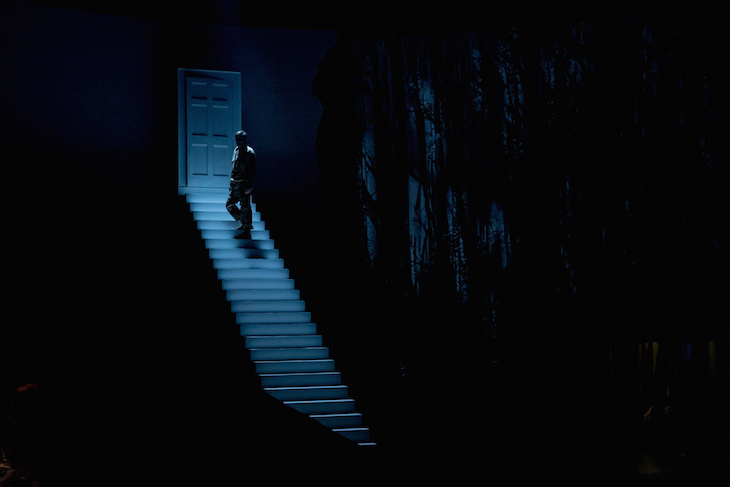David Hare’s Radical Take On Ibsen’s Peer Gynt Satirises Contemporary Culture
Looks like this article is a bit old. Be aware that information may have changed since it was published.
Last Updated 14 July 2019

Henrik Ibsen’s epic allegorical verse drama Peer Gynt is a fascinating work but difficult to stage, with its 40 wide-ranging scenes playing fast and loose with reality and fantasy. David Hare may only have added a ‘t’ to the title, but his Peter Gynt is a freewheeling take on the original that uses the basic template of the story while dragging it into the 21st century.

We journey with Peter from his humble background in Western Scotland, eloping with another man’s bride and abandoning the woman who loves him, to a Florida golf resort that is part of his gun-running business empire, to surviving a plane crash in the desert of North Africa where he's acclaimed as a prophet, just escaping drowning after his ship sinks and his eventual return to his home village where he confronts death. It’s a hell of a trip through the anti-hero’s roller-coaster life, which struggles to make its episodic elements coherent.

Hare has moved well away from Norwegian folklore to create a sprawling, hit-and-miss satire on contemporary society and politics. His main target is taken from the king of the trolls’ maxim, “To thine own self be true — and damn the rest of the world”. Peter follows his own whims — later being crowned as “Emperor of Self” by the mad keeper of an Egyptian lunatic asylum — but he confuses self-discovery with self-improvement.

This is connected with Peter’s claim, “People don’t have lives anymore. They have stories.” As a serial fantasist, he is a legend in his own imagination but, as he discovers in the famous onion scene, once he has stripped off the layers there is nothing at its centre – like himself.

With the same leading team behind the stunning Young Chekhov trilogy staged at the National Theatre in 2016, Peter Gynt is a fitfully entertaining, three-and-a-half-hour show using the full resources of the huge Olivier stage, with a 25-strong cast marshalled by Jonathan Kent. Richard Hudson’s spectacular landscape designs are backed by constantly changing video projections from Dick Straker, with music by Paul Englishby played by a live band.

There is a strong central performance from James McArdle as Peter — making a great entrance by seemingly emerging from the clouds — who is not so much a poet-philosopher as a compulsive storyteller, as he changes from dreaming youth to middle-aged cynicism and despairing old age. There is some rare genuine pathos when he comforts his dying mother (a superbly down-to-earth Ann Louise Ross) by ‘conveying’ her to heaven. And there is fine support from Jonathan Coy as the corporate king of the trolls, Guy Henry as a diabolical weird passenger and Oliver Ford Davies as the Button Moulder who wants to melt down Peter’s mediocre soul.

Peter Gynt , Olivier Theatre, National Theatre, Upper Ground, South Bank, SE1 9PX. Tickets £15-£88, until 8 October 2019.



